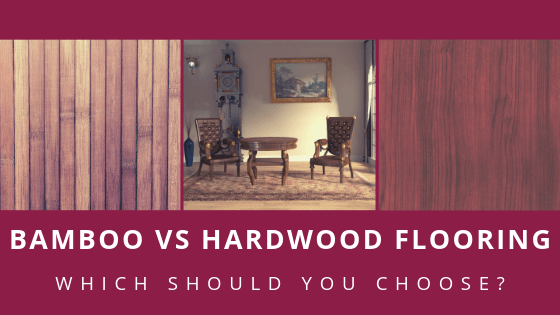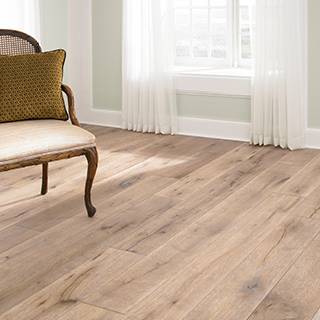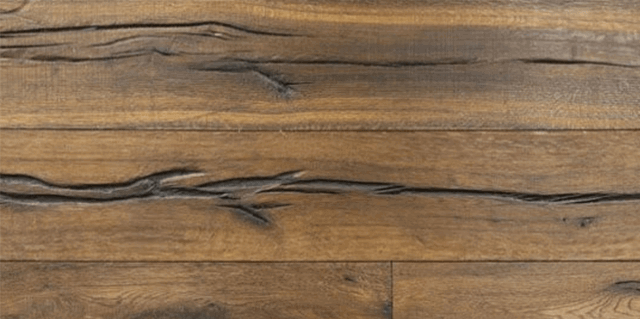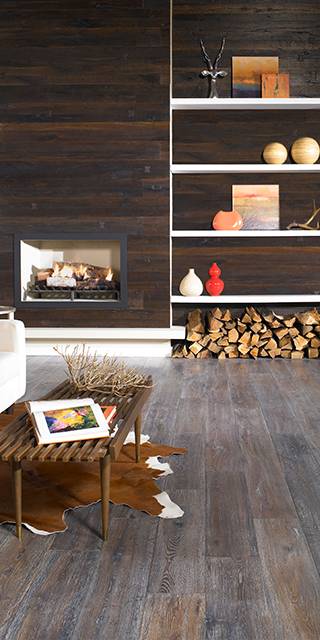Bamboo Flooring vs Hardwood: Which Should You Choose?
February 24, 2019
If you look at your home as a body, you will begin to understand that each area is like it’s own organ; every part must work together to create a functioning organism. Your floors are like the palms of your hands or the soles of your feet. They’re crucial for everyday living. So, making the right flooring choice is vital. This guide explains the differences between hardwood and bamboo flooring to make your decision easier.
When remodeling your home or building a new one, you have many things to consider. Choosing the type of floor you will use is just one of your responsibilities, and not everyone knows what steps to take to achieve their desired results. Like most major areas of your home, your floor is an investment that will affect your life for years to come.
First, What is the Pricing Difference Between the Two Flooring Types?
As you choose a path, the price of your flooring should always be near the front of your mind. Even a difference of a few dollars adds up when you consider the size of your floor and the number of materials you must use to finish the job. Depending on where you buy bamboo, you will pay about $2 to $5 per square foot.
You notice a relationship between price and quality, and spending more usually means you get a higher quality. In the $2 to $5 price range, quality does not change a lot, so you won’t have too much about which to worry. If you go below $2 per square foot, you will run into quality issues over time.
It’s now time for you to review the price you pay when buying hardwood flooring, and this information is excellent for protecting your budget. Knowing the cost in advance saves you a lot of trouble and helps safeguard your bank account. Standard hardwood will cost between $3 and $5 per square foot, which is a fair price.
You get decent quality and materials that can last for years with proper care when you take this path. On the other hand, you can find exotic hardwood flooring for more than $10 per square foot. Consider your budget and long-term goals when choosing your flooring material.
Installation for both types of flooring should run around the same price.
Next, Here’s a Quality Comparison of Hardwood and Bamboo Floors:
The quality of your floor should play a central role in your decision if you want your floor to last for as long as possible. If you have your eye on bamboo flooring, you should keep in mind that it does not have an official rating system. In other words, you never know what you are going to get when buying bamboo flooring for your home. Your best option is to search for reputable dealers with a record of customer satisfaction.
Quality is much easier to predict when you use hardwood because of the National Wood Flooring Association and other groups rate hardwoods on their size, hardness, quality, moisture tolerance, evenness and more. Look at the rating when you buy hardwood floors, and you will know what you are getting.
Now, the Durability of Hardwood vs Bamboo:
Hardwood is a popular flooring choice and gives you plenty of fantastic advantages you won’t want to overlook. People use some of the strongest trees available when making hardwood, such as oak, hickory, and cherry. The Janka rating measures the hardness of wood, and the hardest is 3,500. While cherry is ranked 950 on the scale, red oak is 1,220. So, hardwoods vary tremendously Keep in mind that some hardwoods are softer than others when making your choice.
To build upon this, let’s take a look at bamboo flooring. On the Janka scale, bamboo scores around 1,762. So, in most cases, bamboo is the more durable choice. Although most people think of bamboo as wood, that is not the full picture. Bamboo is a woody grass that looks and feels similar to wood. Natural bamboo is as hard as or harder than the highest quality hardwood floors. But, keep in mind the fact that treated bamboo loses a lot of its hardness.
Finally, Do You Have Environmental Concerns?
Both hardwood and bamboo are biodegradable and won’t contribute to the global construction waste problem. This is one of the main reasons why homeowners choose to use either of these materials on their floors. By 2025, construction waste is expected to nearly double, making sustainability a priority.
But, they have varying features where the environment is concerned. For example, bamboo grows much faster than trees. In addition, during the harvesting process, bamboo roots don’t need to be removed. The stalks are simply cut, and they later regrow from the same spot. Since you don’t need to replant bamboo, farming requires less fuel than hardwood per harvest. If you care about the planet and want to reduce your carbon footprint, bamboo flooring won’t let you down.
Some people view hardwood as not being environmentally friendly, but that is not usually the case. While it takes most hardwood trees 20 years to grow, they produce a lot of materials in that time. Plus, you don’t have to harvest wood as often as bamboo. When you compare them both, though, it’s clear that hardwood trees use more resources than bamboo flooring. When it comes to our carbon footprint, the way companies operate plays a major role in the amount of waste they produce.
What Can You Do to Decrease Your Footprint when Building or Renovating?
Do you want to know, with certainty, that you’re making a sustainable flooring decision? A trustworthy hardwood flooring expert will support the Lacey Act, which outlines North American laws to protect endangered species and their environment. The act pertains to both hardwood and bamboo suppliers. So, be sure to find out if your flooring installation company supports these laws prior to making a decision between exotic hardwood and imported bamboo.
Not only do you need to make sure your suppliers and builders are conscious of the environment — there are steps you can take to ensure an eco-friendly home improvement process as well:
- Learn to practice source reduction — generate less waste by using fewer materials.
- Try to salvage what you can from your own deconstruction and check out thrift stores like Habitat for Humanity for building supplies and materials before you begin a renovation or construction project.
- Educate yourself about how various building materials can be recycled rather than thrown in a landfill.
- Motivate yourself by understanding the advantages of used, recycled, and salvaged supplies.
Conclusion
When it comes to bamboo flooring vs hardwood, the choice you make impacts your home (and the planet) for years to come, so getting it right the first time is critical. Some people are split down the middle and have no clue what path they should take. If you can relate to that, stop thinking about it and call a flooring expert to help you make a final decision. If you live in the greater Denver area, contact us — we are happy to help find the best hardwood floors for you.






